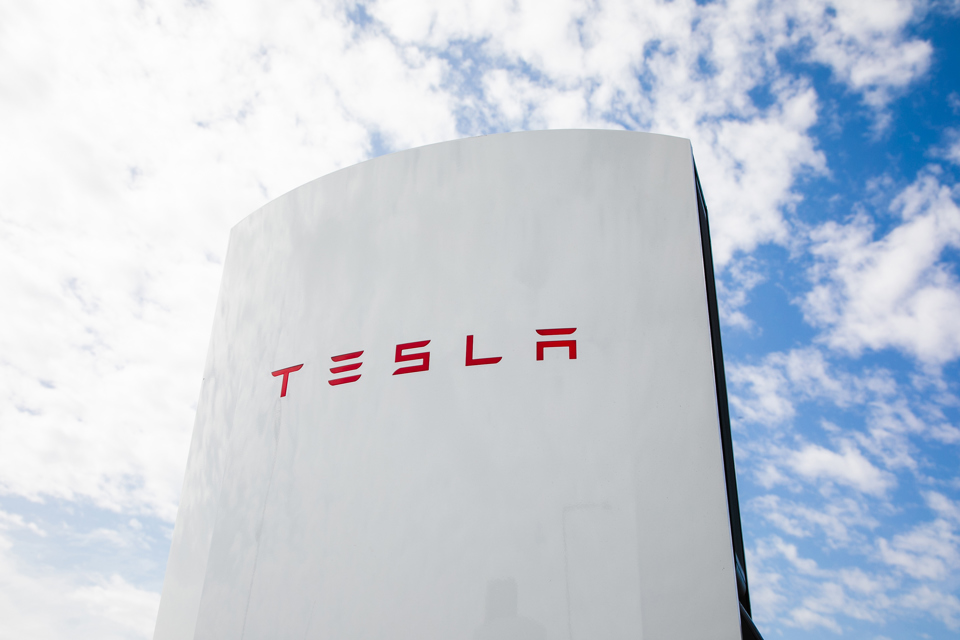Tesla intends to launch a low-cost electric vehicle (EV) within a matter of months after suffering a slump in sales and profits.
There had been suggestions the electric vehicle manufacturer had decided against bringing an entry-level, low-cost Tesla to market, favouring the development of a self-driving “robotaxi” instead.
However, after new car sales fell in 2024 for the first time since 2019, profits declined by 55% and Tesla’s share price tumbled, the EV manufacturer has sought to reassure investors in its latest quarterly update.
Tesla said: “We have updated our future vehicle line-up to accelerate the launch of new models ahead of our previously communicated start of production in the second half of 2025.
“These new vehicles, including more affordable models, will utilise aspects of the next generation (manufacturing) platform as well as aspects of our current platforms and will be able to be produced on the same manufacturing lines as our current vehicle line-up.
“This update may result in achieving less cost reduction than previously expected but enables us to prudently grow our vehicle volumes… during uncertain times.”
Elon Musk has previously indicated that Tesla, which he co-founded in 2003, aimed to bring a car to market for less than £20,000 ($25,000). Tesla’s cheapest current model, the Model 3, has a P11D price of £39,935 in the UK.
The carmaker faces fierce competition globally from Chinese manufacturers targeting the market with low-priced electric cars.
Chinese carmaker BYD, for example, reported record-breaking sales for 2023, selling more than three million electrified vehicles over the course of the year.
Musk had hoped to hit two million Tesla sales in 2023, but despite cutting prices for its model line-up it fell short on what was still an impressive year with 1.8 million registrations.
Read more from Fleet News on the Chinese brands with designs on UK and Europe.
EV price cuts a 'double-edged sword' for fleets
Fleet Check has warned manufacturers against dramatic cuts in prices for EVs to win market share.
Fleet Check MD, Peter Golding, said: “Big EV price cuts are very much a double-edged sword for fleets, sometimes prompting immediate surges in demand but also potentially hitting residual values (RVs) and simply making it difficult to know when to buy.
“There is a lot of news on a global basis about major EV manufacturers such as Tesla and BYD cutting prices in major markets and it is understandable they should want to do so. They have created huge manufacturing capacity and sometimes have considerable inventory.
“It’s imperative from a business point of view that they keep sales moving at a point in time where there are some indications that global demand has momentarily plateaued.”
Golding says that cheaper EVs are a positive on one hand but this kind of disorderly marketing creates issues for fleets. He explained: “At the most basic level, it becomes tricky to know whether now is a good moment to buy?
“For example, if Tesla decided to cut UK prices this month but still have high levels of stock, will they do the same again in the summer and should businesses wait to see what happens?
“At another level, any kind of price war makes setting RVs very difficult. There is already a medium-long term expectation that we will see EV prices fall as the technology becomes more accessible and production volumes increase, but there has perhaps been an assumption that this will happen gradually. What we have instead are quite sudden, headline grabbing price reductions.”
Golding believes that fleet confidence in the EV sector would be easier to maintain if manufacturers took a responsible attitude towards making sure that the market was as orderly as possible, despite the impetus to reduce prices
“If fleets believe a manufacturer is possibly going to suddenly take several thousands of pounds off the price of a car, it potentially makes them less rather than more likely to buy," he said.
“Smaller, regular reductions that appear part of a long-term strategy are more sustainable than immediate, dramatic cuts that have something of an air of panic.
“This is not just essential for the new car market but the used sector, too. While there are some signs that we are seeing a normalisation of the used EV market following the huge falls in values seen in 2023, any kind of new EV price war will fuel wariness among both dealers and used car buyers.
“The importance of a properly functioning EV market for fleets undergoing large scale electrification cannot be overstated.”





















Login to comment
Comments
No comments have been made yet.